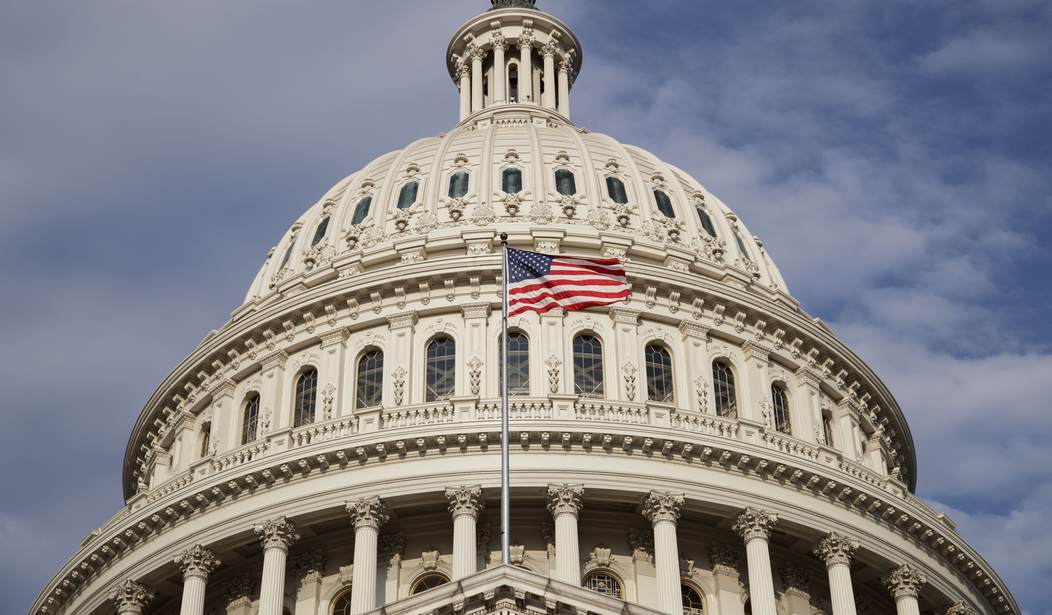"The federal government is how deep in debt?"
"Extremely deep. Last week, our country passed a regrettable milestone when we exceeded $20 trillion in debt."
"How the heck did we get ourselves into such a hole?"
"According to The Hill, last week's debt-limit increase and stopgap government funding bill resulted in one of the largest single-day debt increases in U.S. history. It was enough to push us beyond the $20 trillion mark."
"But haven't our politicians been borrowing big long before last week?"
"That's correct. Since 2002, our politicians have increased the debt nearly $14 trillion. We have been spending, on average, roughly $930 billion per year more than we have taken in in tax receipts."
"That's a lot of cabbage. The numbers are so big, they are hard for average folks to understand."
"TV reporter Jake Tapper explained our debt and spending in a manner that makes it easier to understand. By removing eight zeroes from the federal budget's $4.1 trillion total, he came up with a sum of $41,000, which is easier to comprehend."
"Go on."
"Well, let's say you're a typical American whose bills are $41,000 a year - mortgage, car payments, groceries and so on. Here's the problem: Though you're spending $41,000 annually, your income is only about $36,000. That means you're growing your debt by nearly $5,000 every year."
"I've had such years."
"To make matters worse, you're already accumulated $200,000 in debt - maxed-out credit cards, bank loans, things like that. How can you pay back all that debt when you're earning only $36,000 a year and spending $41,000 a year?"
"You probably can't."
"But matters are worse yet. Because interest rates have been incredibly low, servicing all of your debt is only costing you about $2,000 a year. When rates eventually return to historically normal levels, your debt service will jump to more than $8,000 a year!"
"Let me get this right. I'm already spending $5,000 more than I'm making. When interest rates reset to historically normal levels, my debt service costs jump up another $6,000. That means my total spending will jump from $41,000 to $47,000 - or $11,000 more than I earn?"
"That is correct. Our esteemed political leaders have been overspending for years. But to make matters even worse, the costs of government entitlement programs, such as Social Security and Medicare, are going to explode as the baby boom generation retires."
"That's not good."
"According to The Hill, each American's share of our $20 trillion debt totals $166,000! Unfunded liabilities, including Social Security and Medicare, total another $875,000 per taxpayer."
"You're telling me every one of us is on the hook for more than $1 million?"
"That is correct, and it doesn't bode well for our country's future."
"How so?"
"According to The Hill, the independent Congressional Research Service says that our 'debt eventually must be repaid, either through spending reductions, tax increases, or combination of the two and may also generate crowding out that could reduce future economic productivity.' And 'massive accumulating debt provides more money for Congress to spend now, at the cost of economic growth and opportunity of future generations.'"
"So what do we do about it?"
"Americans need to wake up and become more knowledgeable about our country's insane spending and debt. We have to press our politicians to roll up their sleeves and tackle waste, fraud, and duplication of effort in federal programs. We can't let them keep kicking the can down the road, or massive pain is just ahead."
20 Trillion Reasons to Address National Debt Right Now
The opinions expressed by columnists are their own and do not necessarily represent the views of Townhall.com.

Advertisement
Recommended
Trending on Townhall Videos
Advertisement
Advertisement
Advertisement
























Join the conversation as a VIP Member